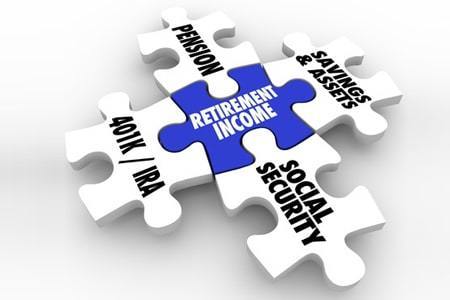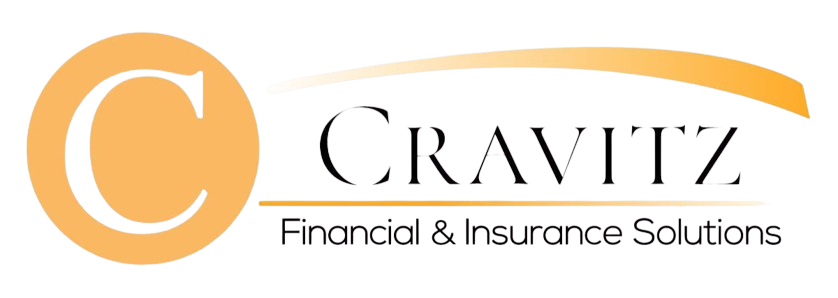In this video we share some of the important things to consider before doing a Roth conversion. Some of the things we discuss include whether you should do a Roth conversion or not. If so, when should you do a Roth conversion? How much should you convert?
With taxes set to increase in 2026 this is something that needs to be considered. The benefit to converting your IRA to a Roth IRA are that you and your beneficiaries will have tax free withdrawals in the future. This can help give you more flexibility when structing an income plan and can help to reduce the overall taxes you have to pay.
We will discuss the pros and cons and important things to think about if deciding whether to convert or not in your 50's, 60's or 70's. Some of the things we touch on that could effect your decision include whether you are still working, if you have to take RMD's, or if you want to do QCD's.

News You Can Use
Get actionable financial advice delivered to your inbox a few times a month.
Full Transcript:
Erin (00:03):
Ryan, very good to see you today. We're going to start with a question. How old is too old for a Roth conversion.Taxes are set to increase in 2026, and even though it may not feel like it, we are living in a historically low tax rate right now. So let's talk through the pros and cons of a Roth conversion for someone in their seventies or younger. We'll break it down, but first I want to talk through the pros. Of course, when you make that conversion, you and your beneficiaries will have tax free withdrawals.
Ryan (00:33):
Yeah, that's definitely the nice benefit of doing that. Roth conversions in the future. All the money that you take out of there, as long as it's now a qualified distribution, it's all going to be tax and penalty free. So that's a huge benefit to doing that, and it's always important to make sure that you're planning, when you're talking about diversification, we talk about that with investments all the time, but it's also important to talk about diversification when it comes to taxes. Now that said, whether you should convert or how much you should convert, that's going to be on a case by case basis, and that's really on a case by case basis even year to year. It depends upon what your income is and where you are within the tax brackets and everything else.
Erin (01:16):
All right, now let's move on to the next pro no required minimum distributions, which means you'll have more control over your tax liability.
Ryan (01:24):
So this is something that we want to be cautious of because we don't want to go so extreme because if we convert too much and now we don't have any money in A IRA, that may not be a good thing because remember, you can withdraw certain amounts and potentially still remain in a very low tax bracket because you have this thing called the standard deduction, as an example. And so for some people, you may be able to withdraw money from an IRA and still remain in the 0% tax bracket, again, just by simply using that standard deduction. So we want to have a balance as to how much we're going to do, and this is why we use software in our planning to help make those determinations as to how much might make sense on a case by case basis. One of the problems I see, Erin, is sometimes we want to go real extreme one way or the other, and both of those can present that problem. So having that flexibility and knowing how much to contribute to which types of accounts or whether you need to convert, those are some big decisions that need to be made annually.
Erin (02:36):
Right, good point. Alright, let's move on to the cons though. Now, when you make a Roth conversion, you will pay all those taxes upfront, which could mean a very big tax bill come April.
Ryan (02:49):
And this is where you want to be thoughtful on how much you're going to convert and understand, okay, if I make this conversion, how much am I going to have to pay in tax? I'm going to convert only to make sure that I'm remaining in the same tax bracket. So you want to take a look at that. You also want to be thinking about, well, what would happen to my Medicare premiums if you're on Medicare. Might this cause a surcharge for Medicare, that's the IRMAA surcharge, or maybe you're younger than 65 and you're retired and now you're looking to get health insurance and maybe you're looking at trying to get the ACA subsidies, but now if you do that conversion, that might cause you to not get the same subsidies that you were hoping for. And so everything's a balance here and you need to make these decisions in light of your overall financial picture to make sure that you're making the best decisions for you.
Erin (03:49):
Right. There is one more con I want to mention, and that is uncertainty over future tax rates. They could go higher. They could go lower.
Ryan (04:00):
Yeah, they could. Again, we do know that in a couple years the Tax Cuts and Jobs Act is going to sunset. So in 2026 we'll go back to the old tax rates. And it's important to know that this is not something that's a proposal. This is something I've been hearing more and more, and I think it's because it's an election year there's some confusion sometimes out there that, well, maybe that's just the proposal that these tax rates will go up. That's not the case. This is the current law that tax rates will go up in 2026. Now of course, our friends in Congress could get together and they could all make some different decisions between now and then, but as it stands right now, we do know that taxes will go up in a couple years for sure.
Erin (04:46):
Alright, so let's break this down to brass tax and maybe divide it up according to age, somebody in their fifties, sixties, seventies, somebody who's working versus somebody who's retired, if I can pay that tax bill with cash. When is the answer a yes? When is it a no?
Ryan (05:04):
Well, yeah, paying it with cash on the sidelines is definitely the way to go, but just to walk you through a couple scenarios. If you're in your fifties, a lot of times people are in their peak earning years, and a lot of times it doesn't make a ton of sense to do that conversion when I run the numbers because we're already in a high tax bracket. Now, of course, we need to balance that versus how much you already have saved in these pre-tax retirement accounts versus other types of savings. But that's one thing. And then when you get into your sixties, maybe now you're retired. Now maybe there's some good opportunities to do some conversions because now at this point you're in a low tax bracket, you don't have the income coming from working, so you can be strategic about how much you're going to convert there.
(05:53):
Now in your seventies, it starts to get more tricky because you have RMDs to worry about, and you have to make sure that you're taking your RMD before you do conversions. You also have potential QCD's, which are a whole other topic because some people want to give to charity, and you have to make sure the timing behind that is right if you're going to do these conversions. So you have to be mindful about what you're doing in the big picture to make sure that you're making the right decisions, that you don't make any mistakes that can cost you significant amount of money. So lot to think through Erin.
Erin (06:29):
Clearly no cookie cutter answer as far as a yes or a no. So Ryan, if somebody wants to crunch the numbers with you, what's the best way to reach you.
Ryan (06:38):
Could call 714-462-9155 or could go to the website, CravitzFinancial.com. Go to the contact page there and submit a message.
Erin (06:50):
Great, Ryan, thank you.
Ryan (06:52):
Thank you.
